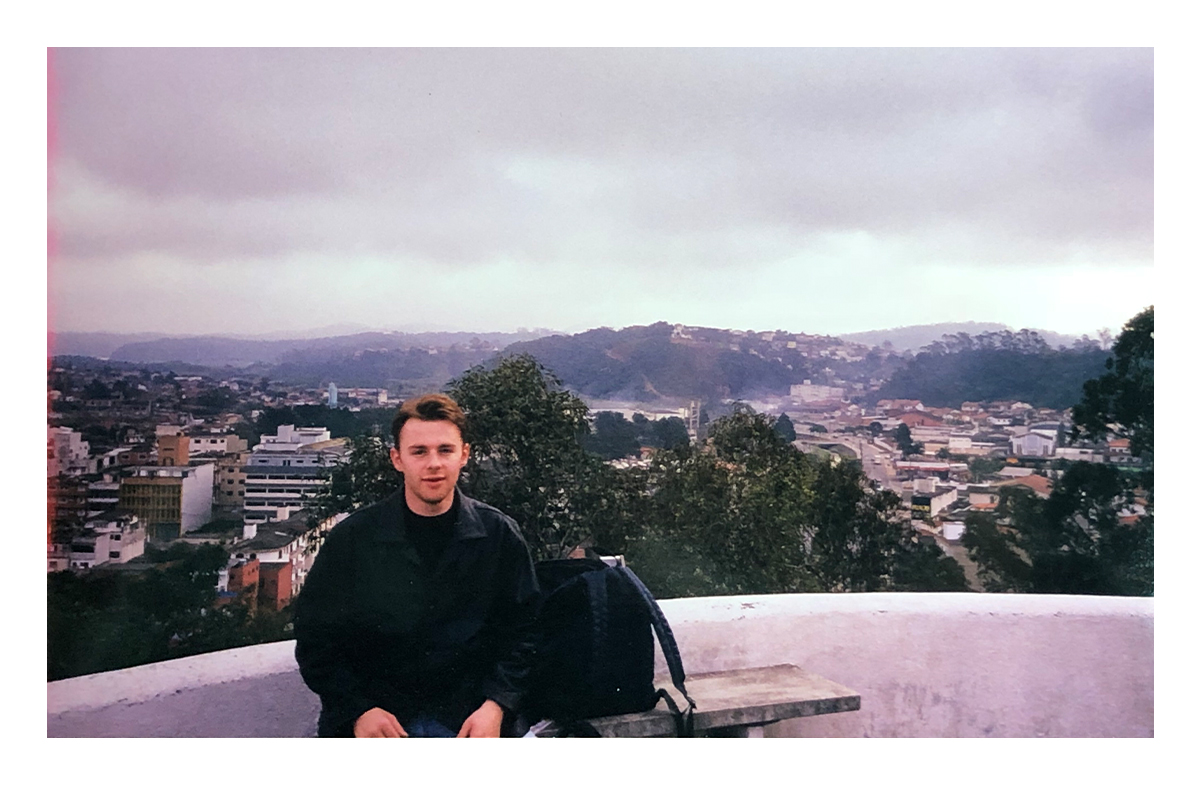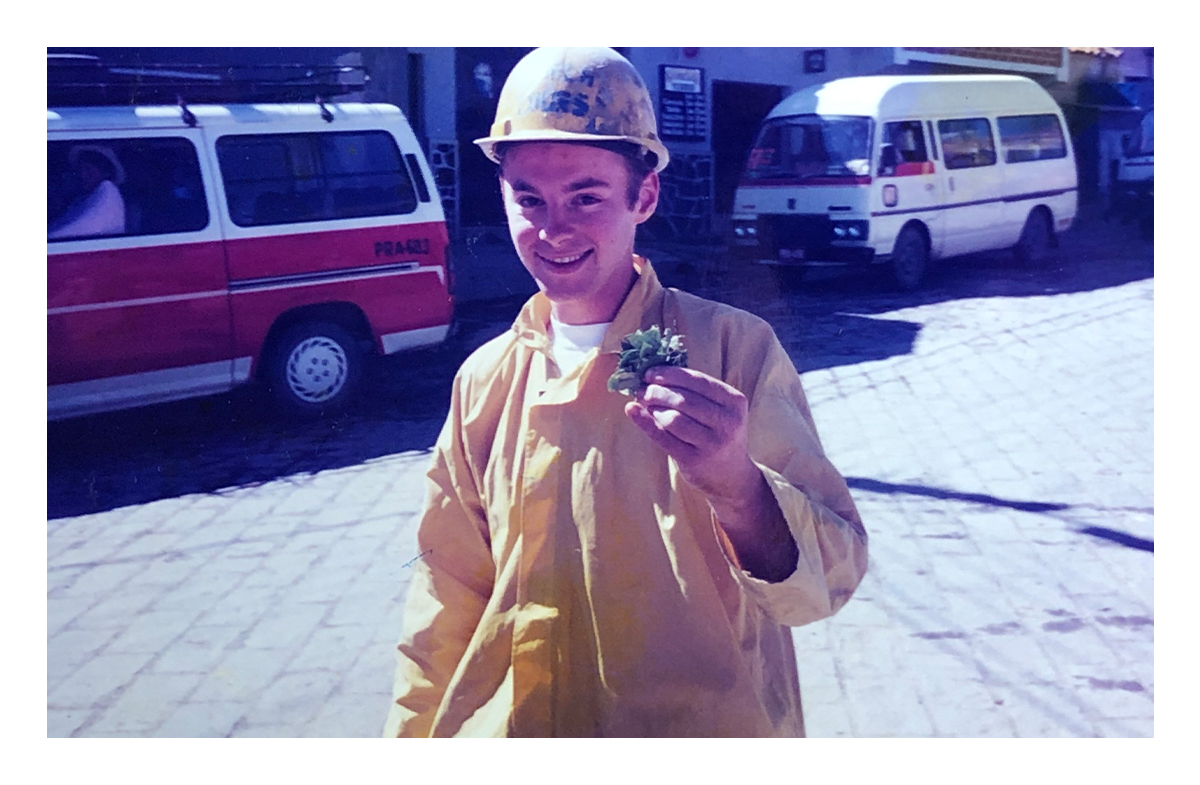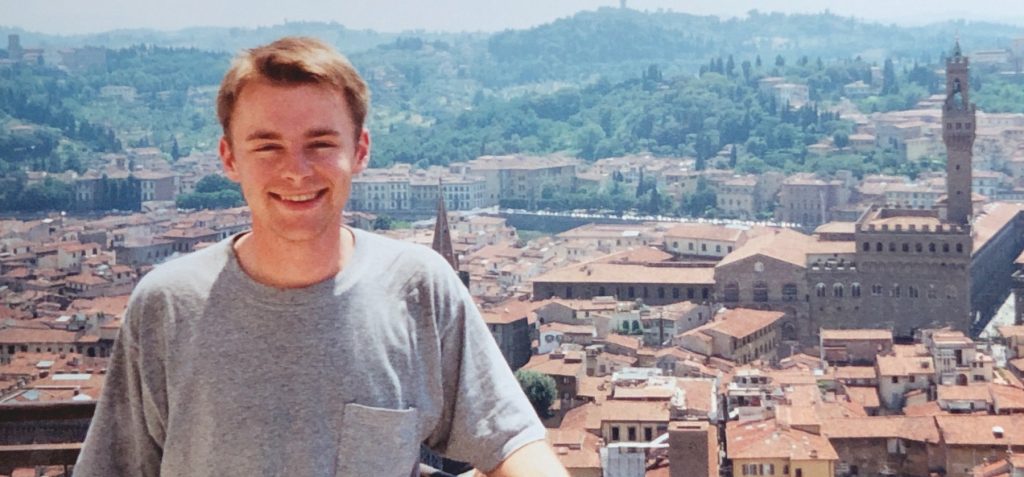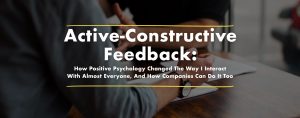Lesson 1: 1996- “Vívalo y créalo”
Travel is central to my life. I go wherever my mission to preach 10%ing and fight FOMO takes me, and it takes me everywhere. I often have to pinch myself when I think of the adventures, amazing sights, fun, great food, and wonderful encounters I experience as a fringe benefit of all these “business trips.”
travel causes all the things that make us excel
Travel has long captured the imagination of seemingly disparate cultures, and each has found a unique language to describe the experience of setting of on a journey. In Afghanistan, “the world is the traveler’s inn.” In Japan, “if you love your son, let him travel.” In Vietnam, “a day of travel will bring a basketful of learning.” And it’s no surprise: travel causes all the things that make us excel: it takes us out of our comfort zone, exposes us to new stimuli, and allows us to experiment and test ourselves in thrillingly unpredictable situations.
As I think about my travel experiences to date, the ones that stand out are those that taught me powerful lessons. I’d like to share some of the wisdom travelling has given to me, so join me- there’s no passport required! While I’m happy to have you along on the journey, though, don’t let this be a substitute for your own adventures.
Warning: this story contains some accounts of yikes-inducing conditions. Nobody gets eaten by crocodiles or held for ransom by pirates, but there’s a lot of pee.


Let’s go back to the very first time that I, Patrick McGinnis, left American soil on an international trip. I was 21 years old, studying in Buenos Aires during my junior year in college, and I decided, with my roommate Dan, to travel (mostly) over land from Colombia to Buenos Aires. The first leg of the trip was a bus trip from Bogotá to Cartagena. We didn’t tell our parents- our plan was to avoid disclosing our whereabouts and itinerary until we had made our way, after our Colombian escapades, to the comparative safety of Ecuador (sorry about that, Mom and Dad).
I say “comparative safety” because in 1996, the Colombian government’s ongoing war with the FARC rebel group and various splinter guerilla militias spilled across the jungles, cities, and highways connecting large swathes of the country. In fact, the day that we arrived, the United States had just de-certified Colombia as a partner in its “war on drugs,” since the national police were ineffective in opposing the powerful cocaine cartels that seemed to exert power wherever they pleased. All in all, this was a heady brew of danger and excitement to tempt me, an indestructible young turk with somewhat serviceable Spanish and six weeks to get from Colombia back down to Argentina!
“Everyone is so nice around here, how could it really be so bad?”
Upon arriving in Bogotá, I recall feeling a strange sense of cognitive dissonance as I wandered the city in the midst of Colombia’s civil war, seeing oil drums aflame with burning garbage and impromptu roadblocks in the rougher neighborhoods. I turned to Dan and asked, “everyone is so nice around here, how could it really be so bad?” A few days later, we set out on our bus ride to Cartagena. We were living on a strict travel budget of $50 per day, so it felt like a big luxury to have spent about $50 each on a comfortable 14-hour ride to the coast. We felt like we were traveling first class, or as close as you could get on a Colombian bus in the mid-1990’s. There was TV, air conditioning, toilets, and the promise of tasty food along the way. Sure, a few people had brought small dogs, which felt a bit weird, but otherwise, I was expecting a comfortable journey to the coast.
While this was well before anyone had Twitter, the journey quickly turned into a #fail.
The TV died once we left the city. The AC died shortly thereafter. The food came in plastic packages you had to tear open and consisted of various tan carb-centric items. Disheartened but resilient, I settled down to sleep. With a start, I woke up some hours later to discover that we had pulled off the road. I heard voices outside, and grew afraid, as I blearily imagined that we were falling victim to a kidnapping, then a common hazard. Fortunately, it was “just” a breakdown, and the driver got the bus started again. I began to settle back into what was merely a slightly inconvenient but otherwise as-planned ride.
Within seconds of pulling back onto the road, however, the driver swerved to avoid a head-on collision. In the process, he ran us into a ditch- this time requiring us to stop for several hours of repair. While the repairs got us moving again, we were now limping along at a maximum of about 30 mph. There were other new developments as well: coinciding with the crippling damage to our vehicle, our luxury express tourist bus to the coast apparently became a local service coach. We stopped constantly, every 20 or 30 minutes, for passengers who lived in the tiny villages along our route. My confusion gave way to outrage, then anger, as I realized that the 14-hour estimate for our trip was probably off by double digits. In contrast, the crazier things got, the happier Dan seemed and he met my protests with peals of laughter. As any good 21-year old guy would respond, I punched him often.
As we stopped in a series of small towns, the mix of people on the bus grew more interesting. Among the passengers that joined us were a 90-year old blind man and his 12-year old grandson, who boarded and promptly sat in separate sections of the bus. The old man sat beside me, took a plastic bag from his pocket, opened his fly, filled it with his own urine, tied it off, and tried to hand it off to me, saying simply, “take this, grandson.” I drew upon my limited Spanish to call over his real grandson and thankfully, the package reached its destination without me.
For the first time in my life, I stared down the muzzle of a rifle
Remember those cute little lap dogs from the beginning of the story? Just like the gentleman sitting next to me, by that point in the journey, they had all peed on the floor with reckless abandon.Things were no better for the human passengers. At some point, the toilets broke, got backed up when people continued using them, and began leaking out from under the bathroom door and down the aisle of the bus towards the back.
By hour 18, the bus was getting a bit ripe, so being stopped by the military felt like a refreshing break. I say “the military,” but to this day I am unsure of their affiliation- they simply boarded our bus, informed us that there was rebel activity in the area, and that all the men were being taken off the bus and searched. For the first time in my life, I stared down the muzzle of a rifle. As sobering as this incident was, the soldiers were actually pretty polite, and handled the moment courteously.
Then, 22 hours into our supposed 14-hour journey, we hit a far more chaotic roadblock: traffic was backed up in a winding line that led up to a large group of demonstrators. A small car ahead of us gamely tried to run the human blockade, only to be promptly encircled by the mob, who climbed onto the car and smashed it to pieces from all sides with whatever the protesters had at hand.
The bus driver, sensing that we had better stay put, called for a rest and we all exited the coach, watching traffic go nowhere. I was thoroughly dispirited and broken: nothing had gone the way I’d planned, it was neither comfortable nor fun, and we seemed powerless against the increasingly perilous mishaps that were visited upon us one after another. The strike would hold us up motionless for three hours before the driver called everyone back onto our battered bus. But at least we could finally get going.
Except that the bus wouldn’t start. The bus was so beat up at this point that the driver needed to resort to muscle to get the vehicle back on the road. He ordered all of the men to get out and help push-start the engine if we ever wanted to see Cartagena (or probably anywhere else ever again, for that matter).
Exhaustion and despair gave way to anger. As I walked down the aisle of the bus to do my part, I growled in Spanish, “no lo puedo creer.” I can’t believe it. To my astonishment, a woman in her 50s, seated on the aisle just beside me and dressed in elegant formal clothes, responded without skipping a beat, “Vívalo y créalo.” Live it and believe it. The bus finally started, and 3 hours later, we dragged ourselves onto the streets of Cartagena.
What stayed with me was not the discomfort or the disappointment or the pee
What had I experienced? That trip defied my expectations in a way that, at the time, did not wow me or make my happy. It made me hot and exhausted and I contended with unwanted situations I could do little to control. Still, while the trip took twice as long as expected, I had arrived, alive and unhurt, although with an permanent aversion to small dogs. What stayed with me was not the discomfort or the disappointment or the pee, but the wisdom I found in that woman’s Zen-like retort to the misery we were enduring: Vívalo y créalo. Accept the situation you are confronted with, move through it, and go on living. Some of these situations will be good, some will be terrible, few will be under your control. All of them will pass. If you can find that kind of wisdom at least once on a trip, you have made the journey count. You have been given the very thing that will make you excel.
Live it and believe it.




